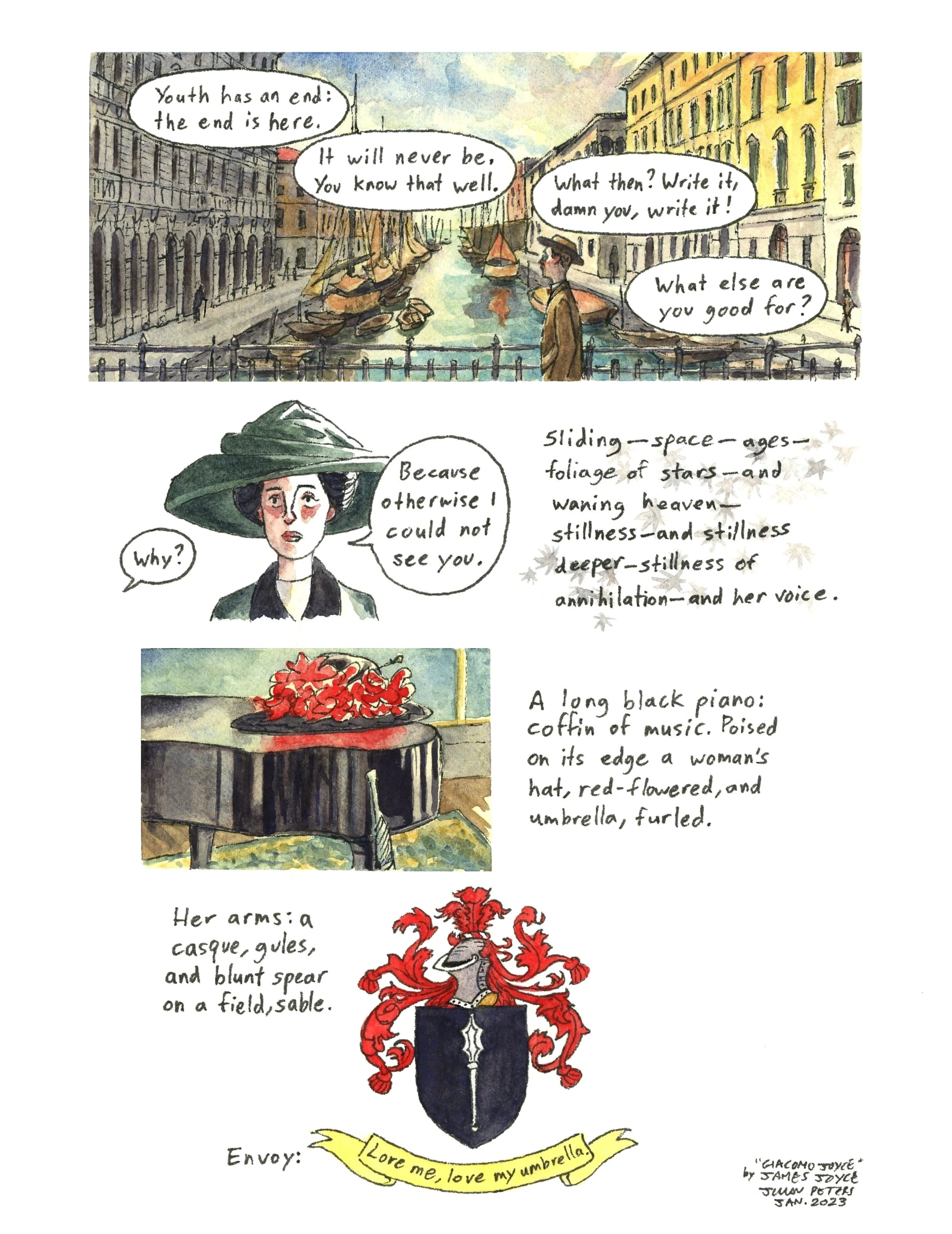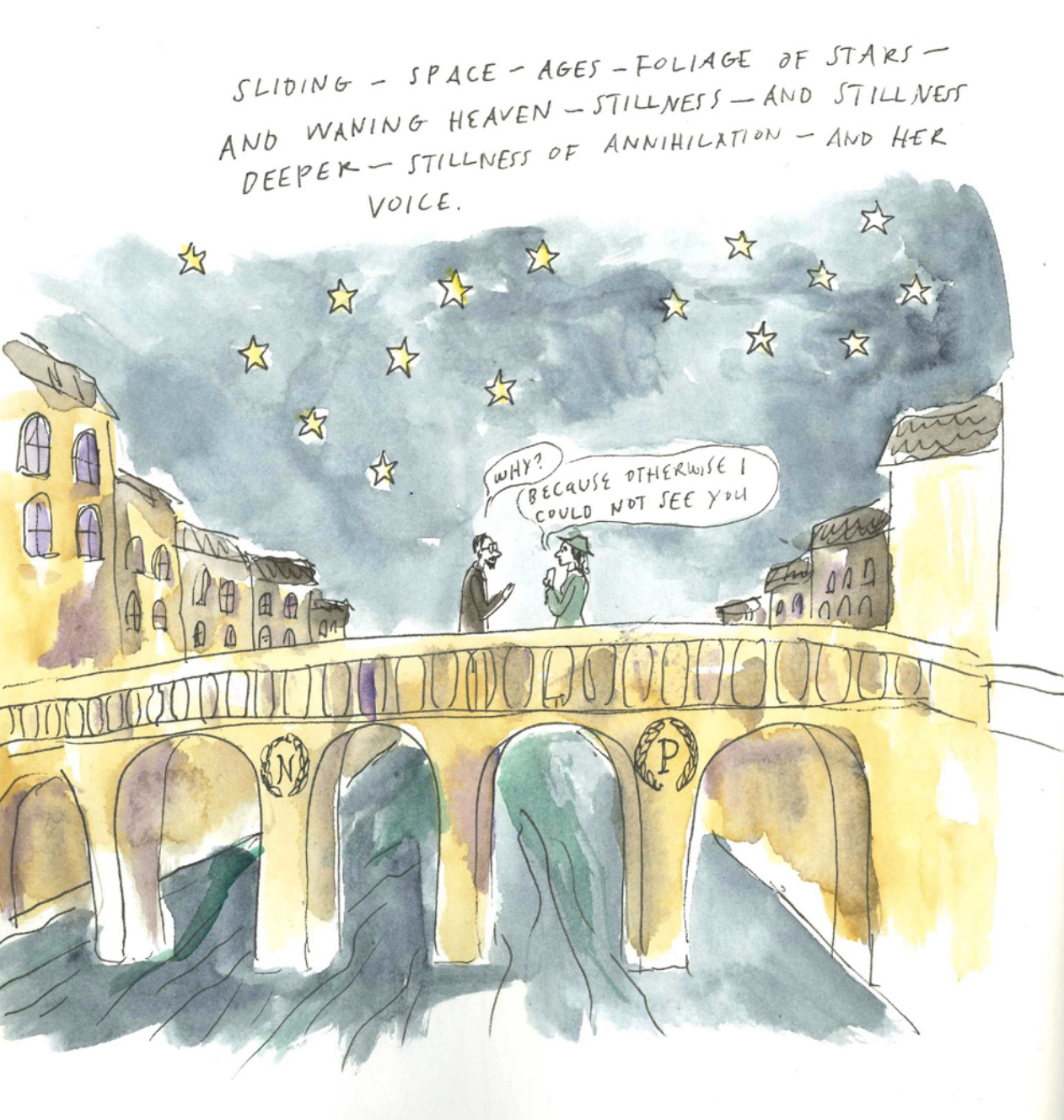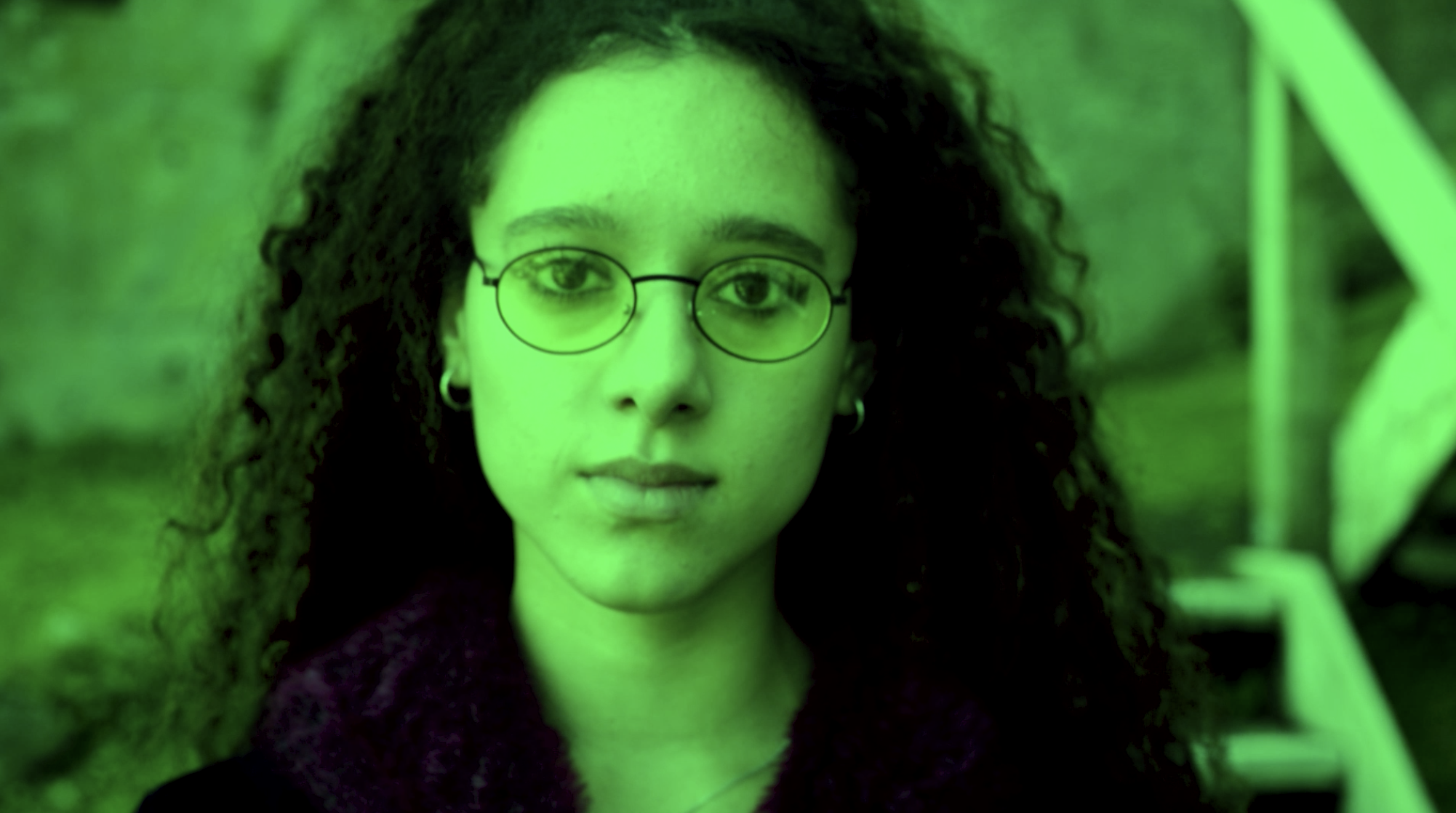I’m also interested in the final image that we see of Joyce’s subject on this page. The last time we see Joyce’s subject is tied to this line of dialogue - “Why?” “Because otherwise I could not see you.” This dialogue transfixed me after my first reading of the text, and I was interested in how each of our contributors interpreted, and then re-imagined, this moment.
Joyce, Giacomo Joyce, page 16
JP
ED: On the last page, the words, “Because otherwise I could not see you,” are spoken by the student. Your illustration brings a real sense of poignancy to this moment that I was drawn to in Joyce’s original text – I'd like to ask what do these words mean to you?
JP: I took this line by the student to be a represent the culminating moment of a conversation along the lines of “You must desist from your advances on me.” Often in one’s significant conversations there is a particular line spoken by the other person that stands out for us, that echoes in the memory. I was imagining that, for Giacomo Joyce, these words by his students are those that drove the final nail in his hopes for any materialization of his fantasy.
ED: You follow this moment with writing out the starry lyricism of Joyce’s next passage; “Sliding-space-ages-foliage of stars-and waning heaven-stillness-and stillness deeper-stillness of annihilation-and her voice.” What does this mean to you, and why did you choose to draw it in this way?
JP: The subsequent passage felt to me like an evocation of that sort of psychic rearrangement of time and space that comes with the final abandonment of a certain ambition or a certain illusion. I didn’t want my illustration to get too much in the way of the very imagistic words in that instance; the text is underlaid by a light ink wash drawing of Japanese maple leaves, the shape of which somewhat recalls that of stylized stars.
SL
ED: The last time we see the student and Joyce together is on a bridge above the water, with the starry night above. This is an extra-long shot, with the side profiles of both figures small against the night sky. The student says, “Because otherwise I could not see you.” What does this particular line of dialogue mean to you? To me, it feels poignant, melancholy, and at the same time – celestial, climactic – and, most importantly, open-ended, which I feel you have achieved well. What is the nature of this open-end to you?
SL: I think I always fall back on cinematic tropes and whereas at certain points of the story we zoomed in, here we are zooming out. As I described before, I feel like the student is giving Joyce something – perhaps an Italian translation of The Portrait of the artist? – as a token to bond them together. This act suggests that their feelings are mutual, if not acted upon. There is something a little elicit about meeting on a bridge. A bridge is a transition point. There is also water constantly flowing below it, suggesting time passing, things in constant flux. She is probably older than when we first met her. Also I looked up an image of a bridge in Trieste and found it very beautiful.
ED: Tyler, you mentioned after our first screening that the film ends on a pessimistic note, with a lingering shot of the face of one of the women gazing directly into (and therefore acknowledging) the lens. I wanted to clarify what you mean by pessimism in this context? What does this shot tell us; tell you?
TST: The pessimism is that the function of desire returns – that the wife figure doesn’t save Giacomo. The penultimate shot is of the wife in colour, and then it fades slowly into this final shot, which is a remake of the first image described in the text. There’s a reversal between [the] first & last image, where the original end image in Giacomo Joyce is here at the start, and at the end the woman looks at Giacomo & the filmmaker. But this doesn’t stop Giacomo’s desire, he falls right back into it – which follows the text as well – my love, umbrella, there’s a call to Nora that he never really returns to.
ED: What kinds of decisions led you to include this as the final shot? And - why was it important for your film to end on this tone?
TST: I think it’s important that Giacomo is not saved or redeemed, and that the viewer doesn’t feel that he is redeemed, if anything they feel as though the woman is redeemed by getting to look, and not just being looked at. It’s important that she gets the final look.
❦
It all begins with an idea —
Interpretation entails visibility: meaning cannot remain hidden, and truth cannot remain intangible; evolution unveils alternatives and makes you recognize the unspoken and the undone.



